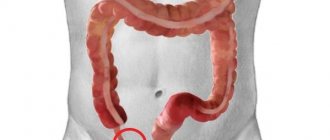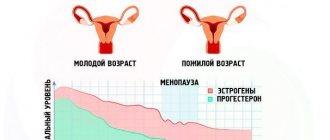Artificial menopause is a decrease in hormone levels with the help of special medications. It is worth noting that such a procedure is allowed only according to indications, since it causes changes to the entire human body, including the menstrual cycle.
Sometimes medicated menopause can be useful for a person, as it gives the reproductive system a rest for a while: there are no periods, the growth of the endometrium stops, and hormones are not produced. Those people who have never encountered serious gynecological problems do not know what artificial menopause in women is. A similar procedure is carried out only for serious repentance.
For whom is the procedure indicated?
Female hormones are produced by different organs, and the ovaries are most involved in this process. Artificial menopause is a period of time during which their functions stop working. This condition is necessary in the following cases:
- myoma;
- cyst;
- fibroma;
- uterine bleeding;
- infertility;
- endometriosis.
During this procedure, the tumor reduces its size. But sometimes it is not recommended to undergo such therapy, since menopause after chemotherapy can occur on its own, but not artificially, but real. There are also cases where this condition began after 35-40 years. Do not forget that uterine fibroids are a dangerous disease that can develop into a tumor, and then the patient will require chemotherapy and other radiation. You shouldn't let the disease get worse when there are ways to cure it in a safe way.
During the above diseases, estrogens have a negative effect on deformed organs. These hormones do not carry out their sexual functions, but increase the number of benign neoplasm cells.
Artificial menopause for fibroids is necessary in order to prevent this disease, since the tumor begins to increase due to female sex hormones. To reduce them, it is necessary to artificially induce such a state.
If we are talking about serious diseases, then medication is not required to induce menopause. Such patients need to have their ovaries removed or treated with X-rays.
Injections for artificial menopause are used much more often than other forms of similar medicine. It is this form that is much easier for ladies to tolerate and has the desired effect faster. Whether to choose injections or tablets is a personal matter for each patient, as people tolerate these forms of medication differently.
Types and reasons
Gynecologists note that the treatment of some diseases of the female genital area cannot be carried out without reducing the production of sex hormones. This procedure involves introducing a woman into artificial menopause.
Treatment with artificial menopause is carried out for diseases that depend on hormonal levels, for example, endometriosis. In essence, artificial menopause is a temporary stop in the functioning of the ovaries. The purpose of artificial menopause is to stop the synthesis of sex hormones. Thus, the woman stops menstruating and begins to show signs of menopause.
Unlike physiological menopause, artificial menopause is created medicinally for specific purposes. Treatment is carried out in women of reproductive age to achieve therapeutic effects. After treatment is completed, reproductive function, as well as menstruation, are restored.
Some time ago, experts used surgical removal of appendages to create artificial menopause. As a result, reproductive function was lost, and physiological menopause occurred much earlier.
In modern gynecology, to introduce a woman into artificial menopause, drugs are used that suppress the synthesis of estrogen. Indications for the use of artificial menopause are the following gynecological pathologies:
- myoma,
- endometriosis,
- bleeding,
- infertility,
- various hormonal disorders,
- malignant tumors of the reproductive system.
The therapeutic effect is achieved by temporarily stopping the functioning of the ovaries. The process of maturation of the egg and menstruation are absent, however, the endometrium of the uterus does not change. Changes in the uterus of a hypertrophic nature are smoothed out, thereby reducing the volume of neoplasms.
In case of severe pathology, not medications can be used to create an artificial menopause, but the following tactics:
- x-ray radiation,
- surgical removal of the ovaries.
Artificial menopause is not used in the following cases:
- severe pathologies of the cardiovascular system,
- acute thrombosis and thrombophlebitis,
- liver diseases,
- breastfeeding period.
In modern gynecology, several methods are used to introduce a patient into artificial menopause. Each tactic has its own characteristics and indications for implementation.
Surgical
It is known that surgical menopause is the most radical method. Surgical menopause is achieved by removing the ovaries, which is irreversible. Thus, reproductive function is completely lost. This surgery is called an oophorectomy. Among the main indications are malignant tumors of the uterus, ovaries and mammary glands.
Surgical menopause also occurs as a result of the following interventions:
- hysterectomy, which involves removing the uterus while preserving the ovaries,
- complete removal, meaning amputation of the uterus and ovaries.
According to statistics, surgical menopause is usually associated with uterine amputation. At the same time, they try to preserve the ovaries in order to maintain hormonal levels and reduce signs of menopause.
Hysterectomy is indicated in the following cases:
- uterine cancer,
- endometriosis,
- prolonged bleeding as a consequence of hyperplasia,
- benign tumors,
- myoma,
- prolapse of the uterine body,
- intense pain syndrome.
Ovariectomy is performed for these pathologies:
- cyst formation,
- malignant tumors,
- tubo-ovarian abscess,
- ectopic pregnancy,
- infertility due to an inflammatory process,
- ovarian rupture,
- hormone-dependent breast tumor.
If at least one ovary is preserved after hysterectomy, minimal amounts of sex hormones are synthesized. There is no menstruation, but spotting may be observed. Physiological menopause occurs five years earlier. With the simultaneous removal of both ovaries, a sharp estrogen deficiency develops, which is accompanied by severe symptoms of menopause.
Consequences after surgery include urinary incontinence, chronic pain and vaginal prolapse. However, in some cases, surgical menopause has life-saving indications.
Ray
Artificial menopause is carried out using x-ray irradiation of the ovaries. Indications for irradiation include malignant tumors of the reproductive system and blood diseases. Restoration of reproductive function after radiation therapy is possible. However, partial recovery is often implied.
Medication
The patient is put into a state of artificial menopause using medications that are analogues of hypothalamic hormones that suspend the functioning of the ovaries. Experts say that drug tactics are the most gentle. Moreover, after leaving artificial menopause, complete restoration of reproductive function is expected.
The following drugs are used to introduce a woman into artificial menopause:
- Lucrin depot,
- Buserelin,
- Zoladex,
- Diferelin.
These drugs are used in the form of injections and sprays.
Also, to create an artificial menopause, gynecologists can use the following means:
- progestin drugs – Norkolut,
- antigonadotropic drugs – Danazol,
- combined agents in continuous mode.
Duration
Experts emphasize that artificial medicinal menopause has clear time boundaries within which the therapeutic effect is achieved. The duration of artificial menopause of a medicinal nature should not exceed six months.
With surgical menopause, the changes are irreversible. Reproductive function is lost.
Types of procedure
The hormone that causes menopause can sometimes be released in varying amounts and cause serious consequences. In this case, artificial induction is indicated to stop the growth of cancer cells. But you should know that this can be done using one of three methods:
- Surgical, in which the ovaries are completely removed - indicated for oncology. In this case, it will not be possible to get out of menopause quickly, since the recovery period requires long-term care. Tablets for artificial menopause are also indicated in this case, but only to restore hormone levels. Thanks to this technique, the entire process is less painful.
- Radiological (radiation), in which the ovaries are irradiated. Organs are restored after such intervention, but do not perform all their functions. Its principle is similar to chemotherapy.
- Medication, which is considered one of the safest methods. Opk injections and pills that cause menopause can only be prescribed by the attending physician. After this method, the ovaries are completely restored. Hormones that cause menopause first stimulate the ovaries and then temporarily stop their function.
It is worth noting that the drug for artificial menopause can be from different groups of medications. First of all, for treatment, the doctor prescribes agonists: gonadotropin-releasing hormone. In order to understand what to take during artificial menopause, it is worth knowing that you need to choose medications that will stop the production of hormones responsible for performing the basic functions of the ovaries.
Why is it necessary to provoke premature menopause?
The consequences of interfering with a woman’s hormonal levels are difficult to predict, so menopause is provoked only in extreme cases. The main purpose of this procedure is the treatment of a number of gynecological diseases, the activity of sex hormones in which can lead to complications. In addition, artificial menopause is induced as one of the preparation measures for in vitro fertilization.
Menopause as a method of therapy is prescribed for the following diseases:
- endometriosis;
- myoma;
- fibroma;
- cystosis
Female sex hormones - estrogens and progesterone - play a decisive role in the development of these diseases. They affect tissues in the organs of the reproductive system and provoke the expansion of foci of pathological growth of the endometrium or the proliferation of tumors. Since hormones are produced by the ovaries, their work must be suppressed in order to stop the development of the disease. At the same time, ovulation and menstruation stop, the reproductive system rests.
In the treatment of hormonal infertility, estrogen levels are reduced to provoke rupture of the follicle and the release of the egg. With IVF, following hypoestrogenism, there is a sharp increase in progesterone levels, due to which several eggs are released at once - this increases the chances of successful fertilization.
In cases of a particularly severe course of the disease or with late diagnosis, when a temporary change in hormonal levels will no longer help, they resort to surgical or radiological methods of provoking menopause - the ovaries are removed or treated with X-ray radiation. However, in most cases, artificial menopause can be caused with the help of medications. In any case, the changes will be drastic compared to natural menopause, so a woman needs to prepare for certain consequences for the body.
https://youtu.be/Att5uG3CrRo
How does artificial menopause occur?
As mentioned above, the main symptom of artificial menopause is the absence of menstruation. However, this condition also has other signs:
- headache;
- migraine;
- deterioration of health;
- pain in the chest, stomach;
- dry skin and mucous membranes;
- dizziness;
- pain during sexual activity;
- lack of desire during sexual intercourse;
- "tides";
- emotional change;
- itching;
- peeling.
It is worth noting that the symptoms and pain during artificial menopause are similar to those that appear in women after 45-50 years. But everyone should know that there is no need to take painkillers to relieve painful symptoms - then the therapy may not be effective. In addition to this improvement, the doctor may prescribe vitamins, calcium, and estrogens.
Artificial menopause is dangerous because it occurs unexpectedly and the female body is not yet ready for such changes. Its first symptoms may be nonspecific, but changes in mood most often occur.
Symptoms
Signs of menopause begin to appear in the first weeks after surgery.
The woman’s condition is accompanied by the following symptoms:
- hot flashes occurring due to impaired thermoregulation. A sudden increase in temperature with profuse sweating is accompanied by flushing of the skin of the face and neck. Hot flashes are replaced by chills. The condition greatly debilitates a woman and interferes with her normal lifestyle;
- increased sweating and poor heat tolerance;
- dizziness and migraine caused by a disorder of the autonomic nervous system;
- dryness of the vaginal mucous membranes caused by hormone deficiency. Insufficiently moistened mucous membranes cause pain during sexual intercourse;
- depression, anxiety, emotional disorders . Mental instability is expressed by increased excitability, tearfulness, and loss;
- arterial hypertension;
- rapid heartbeat, myocardial ischemia;
- sleep disturbance . A woman often wakes up due to hot flashes and tachycardia.
Read more Why is the halo itchy?
What drugs can cause artificial menopause?
It is worth noting that artificial menopause can only be caused after consultation with a doctor. Although medications for this procedure are sold without a prescription, it is recommended to perform it only with the permission of a doctor. A gynecologist can prescribe the following medications for artificial menopause:
- Lucrin;
- Buserelin;
- Zoladex;
- Diferelin.
These products are available in different forms: opk injection for artificial menopause and spray. Sprays should be sprayed into the nasal cavity, and injections should be used once every 30 days. Such treatment should last from 2 to 6 months. Doctors often prescribe opk injections to their patients during menopause, which are recognized as the most effective.
Sometimes the therapy may be different; the doctor prescribes oral contraceptives to his patient, which should be taken without interruption. Preparations for artificial menopause can be as follows:
- Duchaston;
- Danol;
- Norkolut;
- Danodiol;
- Visanne;
- Danozol.
It is worth knowing that injections for menopause are different, depending on the consultation with the gynecologist and the diagnosis. But all of them are aimed at reducing the amount of sex hormones. If we cause menopause with pills, then we should also not forget about contraindications and duration of treatment.
What medications make it possible to go through menopause before your due date?
If a woman suffering from illness comes up with the idea of this method of treatment, an interest arises in how to cause menopause.
Naturally, this is done as prescribed by a specialist. Medicines that reduce the concentration of sex hormones are sold freely, but they must be used under the strictest control, otherwise it is easy to get irreversible complications.
Gynecologists prescribe the following drugs for artificial menopause:
- Buserelin;
- Diferelin;
- Zoladex;
- Lucrin.
They are available for injection once every 27-30 days or in the form of a spray that is injected onto the nasal mucosa. The action of the drugs is based on the suppression of the pituitary gland's production of FSH and LH. A sufficient amount of them ensures the development of the ovaries, and a deficiency inhibits it. There is an acute lack of estradiol in the body, which leads to the mentioned symptoms and absence of menstruation. Treatment with these drugs lasts from 2 months to six months.
To suppress menstrual function, some women are shown not gonadotropin-releasing hormone antagonists, but gestagens (Norkolut, Duphaston, Visanne), antigonadotropic drugs (Danazol, Danol, Danogen, Danodiol) or combined oral contraceptives taken without interruption.
Unlike age-related menopause, artificial menopause does not allow for symptom relief through replacement therapy. After all, then there will be no effect from the treatment.
The maximum that a doctor can allow is taking phytoestrogens, calcium supplements, vitamins. It’s better to stop negative manifestations with a healthy lifestyle, proper nutrition, and acceptable physical activity.
What changes occur in the body after treatment?
Such serious treatment affects the entire body. And most women are interested in how they will get out of this state. Those patients who are struggling with infertility need to know whether their reproductive function will be restored?
Recovery of the body will happen sooner or later, but how long it will take, even the most experienced specialist cannot answer. You need to remember about individual characteristics. On average, recovery from artificial menopause lasts from 2 to 4 months, when a person experiences pain in many organs.
If we talk about ovulation, it occurs 2-3 months after the last day of taking medications.
Some people manage to experience all the “delights” of pregnancy already in the second cycle. After all, after the reproductive system rests, it will begin to work with renewed vigor.
It is worth noting that artificial menopause in women does not always cure existing diseases, but the fact that improvements occur can be assured one hundred percent. If before it the menstrual cycle was unstable, after the fake menopause passes, the cycle becomes orderly. The first menstruation may be scanty and insignificant.
Many people mistakenly believe that after artificial menopause, excess weight appears and libido decreases. This is actually a misconception. To understand how to get out of menopause, you need to consult a doctor.
Relief of condition
The tactics for eliminating symptoms depend on the type of artificial menopause. It should be borne in mind that after medical menopause, the functioning of the reproductive system is restored and symptoms disappear. While after surgical removal, hormone replacement therapy is often required.
Exit from artificial menopause
The exit from menopause should be smooth. Full recovery takes a long time. The first menstruation occurs several months after stopping hormonal medications. On average, periods return after 1-12 months.
Ovulation is also restored after taking medications. In this case, pregnancy may occur. Typically, restoration of reproductive function occurs no earlier than two months after discontinuation of treatment.
After artificial menopause, the possibility of conception increases, since the rested reproductive system works more intensively than before treatment. Two months after the patient comes out of artificial menopause, an examination should be conducted to determine the effectiveness of treatment. Sometimes correction is necessary.
Taking hormones
If surgical menopause occurs as a result of removal of the uterus, gynecologists prescribe the following medications:
- Esterlan;
- Premarin;
- Estrofem;
- Triaclim.
In addition, medications for topical use may be prescribed:
- Ovestin;
- Estriol;
- Estronorm;
- Ovipol Clio.
In some cases, combination medications are prescribed that contain both estrogen and progesterone.
- After surgery, there is a possibility of activation of endometriotic lesions.
- To prevent the development of osteoporosis, it is necessary to use hormonal drugs.
Complex hormonal drugs include:
- Klimonorm;
- Cliogest;
- Klymen;
- Femoston.
If surgery is performed for a malignant tumor, the use of hormonal drugs is strictly prohibited. In such cases, homeopathic remedies and herbal remedies can be used.
Herbal remedies
In cases where hormone therapy is contraindicated, herbal medicines can be used. These agents act more gently, their effect is not as pronounced. Among the most effective means are prescribed:
- Klimadinon;
- Estrovel;
- Remens;
- Lefem.
Natural phytoestrogens are used as therapy, which are contained in the following products:
- corn;
- soy;
- lentils;
- hop.
The following traditional medicines can also be used to eliminate unpleasant symptoms:
- hawthorn;
- Red clover;
- sage;
- Melissa;
- valerian.
Additional treatments include antidepressants, drugs for the cardiovascular system, vitamins, dietary supplements.
Creating a Positive Environment
Stress and negative thoughts negatively affect the course of menopause. Walking in the fresh air, reading your favorite books, and communicating with loved ones can help you take your mind off bad thoughts. Sports activities have a good effect.
Nutrition
First of all, you should review your diet. It is extremely important to consume healthy foods. Cereals, fruits, vegetables, fish and dairy products must be included in the diet. Fatty foods, smoked foods and confectionery products can aggravate the condition, for example, cause high blood pressure.
Fighting excess weight and bad habits
Bad habits, in particular alcohol and smoking, can cause headaches and tachycardia. In addition, smoking contributes to the early onset of physiological menopause.
Obesity contributes to problems with blood vessels, heart and musculoskeletal system. Excess weight negatively affects self-perception as a woman who begins to be critical of herself. Moreover, the loss of reproductive function also negatively affects the emotional background.
Physical activity
Adequate physical activity has a beneficial effect on the general condition during surgical menopause. It is advisable that a set of physical exercises be prescribed by a doctor, based on the results of the examination. It is not recommended to exercise immediately before bed, as this can cause overstimulation.
Exit from artificial menopause
Every woman has a different way of coming out of artificial menopause, as this is an individual process. Menopause from injections ends immediately after a person has finished treatment, but the recovery process lasts a long time.
It is worth knowing that pills for artificial menopause can distort hormonal levels. Therefore, it is recommended to be checked only a few months after health therapy. If you want to get tested for hormones and make sure that your health is improved, you need to wait a little.
When a woman feels that she has not come out of artificial menopause, the help of a professional doctor is needed. Sometimes this is just self-hypnosis, and the patient does not suspect that her body is being restored in this way. It is possible for those who suffer from several diagnoses or when such treatment has been unsuccessful in not getting out of artificial menopause on their own.
When a patient says: I can’t get out of artificial menopause, she means that her periods do not start and her health does not improve. Such cases are possible, but very rare and require consultation with an experienced doctor.
To ensure a painless exit from menopause, you can take medications only after consulting a specialist and do not self-medicate.
Symptoms of surgical and medical menopause
With medical menopause, the functioning of the ovaries stops abruptly, while with surgical menopause it stops instantly. Adaptation occurs as a result of the cessation of the synthesis of sex hormones. Signs of artificial menopause are:
- early;
- late.
Early signs appear within the first day and include:
- dryness of the vaginal mucosa and discomfort during intimacy;
- increased sweating;
- headaches, dizziness;
- insomnia, weakness;
- change in skin turgor;
- pain during urination;
- decreased libido, anxiety, mood lability.
Late symptoms appear several months after the onset of artificial menopause:
- decreased skin elasticity;
- dryness and thinning of the dermis;
- brittle nails and hair;
- infections and urinary incontinence;
- hypertension;
- atherosclerosis;
- osteoporosis;
- tendency to form blood clots.
True menopause is accompanied by specific symptoms that are caused by sudden hormonal changes. Hot flashes appear first, then problems arise associated with calcium leaching. Women note emotional instability and vaginal dryness.
With drug-induced artificial menopause, the symptoms are temporary.
Tides
Hot flashes are one of the common manifestations of medical and surgical menopause. The following symptoms are characteristic of hot flashes:
- local temperature increase;
- increased sweating;
- chills;
- redness of the neck and face;
- surges and increases in pressure.
Hot flashes during surgical menopause can occur 10-50 times a day, significantly worsening a woman’s quality of life. In addition, hot flashes are often accompanied by other symptoms, such as headaches and heart pain. Often during hot flashes there is increased sweating. If hot flashes occur as a result of surgical menopause, their duration can be five years.
Autonomic disorders
The cessation of the synthesis of sex hormones affects the autonomic system. Manifestations are observed in most patients and last until the end of the artificially medicated menopause. After the onset of menopause, the following appear:
- headaches and migraines;
- dizziness;
- heartbeat;
- weakness and decreased performance, fatigue;
- tachycardia;
- numbness of the limbs.
Psycho-emotional instability
The body experiences stress, which manifests itself:
- impulsiveness;
- outbursts of anger;
- irritability;
- tearfulness;
- anxiety;
- depression;
- decreased libido;
- sleep disturbance.
A woman feels insecure about her external attractiveness. As a result of psychoemotional disorders, more serious pathologies can arise. An unstable emotional state prevents the body from adapting.
Mucosal atrophy
Estrogens affect the condition of the mucous membranes, in particular the vagina and bladder. As a result, the vaginal mucous membranes become thinner and dry out. This leads to discomfort and itching in the vagina, which intensifies during sexual intercourse. Libido decreases even more, depression and problems in relationships between sexual partners appear.
Cognitive impairment
Estrogen deficiency affects the functioning of the genital organs, as well as the functioning of the brain. Due to hormonal changes, the following symptoms appear:
- decreased perception;
- memory impairment.
Consequences of fake menopause
Sometimes it is not possible to get out of menopause, in which case we are talking about the development of complications. If therapy is carried out incorrectly, ovarian atresia occurs. In this case, recovery takes a long time. But if throughout the recovery the doctor monitored the condition of his patient, then complications should not arise.
Artificial menopause is one of the effective methods for treating serious illnesses. For some, this is the only way to get rid of infertility.
If you want to have a healthy baby, but cannot get pregnant, you need to consult a gynecologist. Those representatives of the fairer sex who can say: I came out of artificial menopause know that this is a long process, during which unpleasant symptoms arise.
Whatever drug you choose for artificial menopause, you must see a doctor and read the instructions for using the selected medication. If alarming symptoms appear, you should not postpone a visit to the doctor. We must not forget that any drug, including an injection for menopause, has contraindications and side effects.
About
Types of menopause
Officially in medicine there is the following classification of menopause:
- premature – from 30 to 40 years;
- early – from 41 to 45 years;
- physiological or natural - occurs at the age of 45-55 years;
- late – after 55 years.
It is known that the longer a woman maintains her menstrual cycle, the better it is for her body. With the early onset of menopause, the process of age-related changes accelerates.
Premature and late cessation of the menstrual cycle is considered by gynecologists as a pathology. Such conditions require a full medical examination and further treatment. When menopause occurs within normal periods, only the use of drugs that alleviate the course of accompanying symptoms is possible.
A type of menopause known as artificial menopause is also known in gynecology. This is a condition when, for certain reasons, specialists cause the extinction of ovarian function. Drug treatment of some diseases also leads to the development of artificial menopause; this is considered as a side effect of therapy.
You can achieve artificial menopause using several methods. Specialists use:
- medicinal hormone therapy;
- surgical technique – ovarian resection;
- radiological method - irradiation of the ovaries.
Surgical menopause is the removal of the ovaries in the presence of benign and malignant tumors, as well as in case of their injury.
The irradiation method is necessary in oncology, when surgical removal of the affected organ becomes impossible. When two ovaries are irradiated or removed, a woman’s menstrual cycle stops and menopause occurs. This process is irreversible and requires hormone therapy.
Treatment principle
The growth of foci of endometriosis, myomas and fibroids of the uterus is “stimulated” by the high level of estradiol in the female body. The principle of treatment is based on the fact that the level of estradiol in the blood is reduced by medication. In addition, the cyclical hormonal changes characteristic of women, endometrial growth and menstrual bleeding, which are also considered a favorable factor for the development of these diseases, are “turned off”. Against the background of hormonal lull, foci of endometriosis atrophy, fibroids and fibroids decrease in size. Artificial menopause is prescribed for medicinal purposes for 2-6 months. Treatment of less than 2 and more than 6 months is considered inappropriate.
Main signs and symptoms of artificial menopause
Artificially induced menopause is accompanied by symptoms that are characteristic of physiological menopause. All signs and symptoms are divided into early and late according to the time of their appearance from the beginning of the development of the process. The first group is characterized by the following symptoms:
- hot flashes;
- heavy sweating during night sleep;
- headaches, dizziness;
- cardiopalmus;
- weakness;
- increased fatigue;
- drowsiness;
- decreased performance;
- memory impairment;
- absent-mindedness.
The psycho-emotional sphere inevitably suffers. Violations manifest themselves in excessive sentimentality, irritability, decreased sexual desire, and depression.
After inducing artificial menopause, menstruation stops completely, which also negatively affects a woman’s mental health. In addition to the lack of menstrual flow, itching and dryness in the vagina occur due to a lack of estrogen.
Experts also identify late signs of artificial menopause, which appear a little later. After such intervention in the reproductive system of the female body, all metabolic and endocrine processes are disrupted. Such violations manifest themselves in the following signs:
- early aging of the skin;
- disturbances in the functioning of the genitourinary system;
- development of cardiovascular diseases;
- manifestation of osteoporosis and atherosclerosis.
Considering the possible consequences of artificial menopause, a specialist must prevent the development of these dangerous pathologies.
Symptoms of menopause
During artificial menopause, the same changes occur in the body as during natural menopause, but given that drug-induced menopause occurs much faster, the symptoms may be more sensitive. A woman is worried about hot flashes, increased sweating, dizziness, tachycardia, irritability, and vaginal dryness.
In the process of natural decline of sexual function, which is accompanied first by irregularity and then by a complete cessation of menstruation, changes in other organs and systems occur in the body:
- Osteoporosis occurs, characterized by fragility of bone tissue.
- The cardiovascular system suffers, this can manifest itself as arterial hypertension, tachycardia, and angina attacks.
- Neuropsychic disorders are also clearly manifested in the majority of women who have entered menopause.
Medical menopause will not cause such serious changes in the body; it is temporary. The normal menstrual cycle is restored after the end of treatment, and all changes that occurred during menopause gradually disappear.










